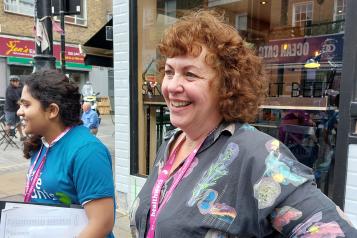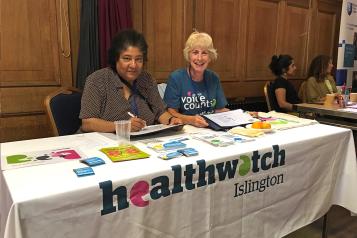Learn about the new commissioning structures in health and care
What is an Integrated Care System?
Integrated Care Systems are partnerships that bring together NHS organisations, local authorities, and others to take collective responsibility for planning services, improving health, and reducing inequalities across geographical areas.
The North Central London Integrated Care System covers Barnet, Camden, Enfield, Haringey, and Islington, and includes 12 hospital trusts, our five local authorities, our general practices, the NHS North Central London Integrated Care Board, working in partnership with the local voluntary and community sector.
Partnership working was accelerated by the COVID-19 pandemic. The NHS, local authorities, and voluntary and community organisations were forced to innovate, collaborating in new ways to meet the challenges that were faced. The Integrated Care System is building on that progress.
What is an Integrated Care Board?
Integrated Care Boards are statutory NHS organisations that manage the NHS budget within a geographical area. They are responsible for planning and funding NHS services. Integrated Care Boards have replaced Clinical Commissioning Groups.
The NHS North Central London Integrated Care Board is responsible for planning and funding NHS services for the North Central London area, which covers Barnet, Camden, Enfield, Haringey, and Islington.
What is an Integrated Care Partnership?
An Integrated Care Partnership is a committee made up of representatives of organisations belonging to the Integrated Care System. It is a decision-making body that brings the NHS together with other key partners. The Integrated Care Board and local authorities form an equal partnership on this committee. Our Integrated Care Partnership meets to develop and drive forward the health and care strategy for North Central London.
What are the current priorities?
All Integrated Care Systems have four key aims:
- improving outcomes in population health and health care.
- tackling inequality in health and care
- enhancing productivity and value for money
- helping the NHS to support broader social and economic development. For example, this would include making sure that the health and care system provided many jobs and opportunities for local people.
Current challenges
Many areas of the health system are under intense pressure at the moment and are priority areas for recovery planning. These include:
- urgent and emergency care, including response times for ambulance services.
- elective waiting lists. The Health Foundation has said that, as of February 2023, over seven million people in England were waiting for routine hospital treatment, up from 6 million the previous year.
- access to primary care (GP and dental services in particular)
How will the Integrated Care System tackle Health inequalities?
Historically, commissioning arrangements have been inconsistent across North Central London. One advantage of commissioning across a greater geographical area is that all residents will have access to the same services.
However, when tackling inequality it is not always the case that one size fits all. Where it is beneficial, individual boroughs may sometimes do things in different ways. There will also be initiatives that need to work at a much more local level. Variation will be offered to help reduce inequality, where it is clear that this approach will produce a better outcome.
Find out more
The North Central London Integrated Care System has its own website where you can find more information.


